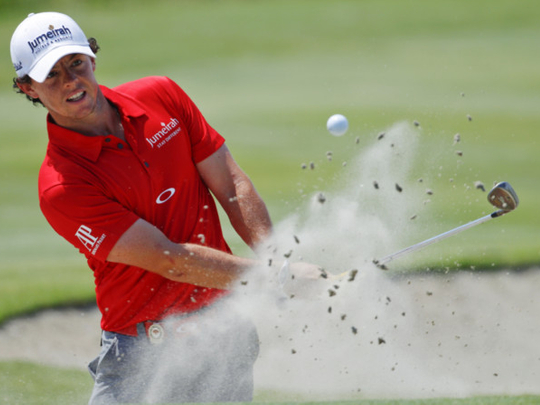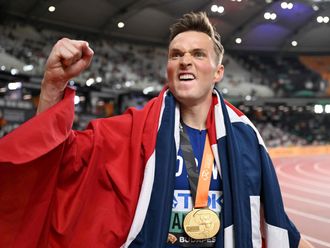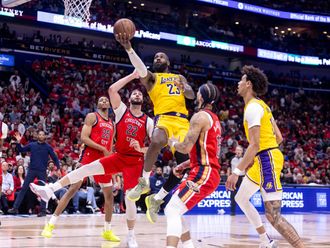
London: The coincidence was poetic. As the curtain fell on London’s glorious Games, Rory McIlroy enjoyed his coronation at Kiawah Island in the knowledge that in four years’ time he, too, could be an Olympian. Even if the 23 year-old might not, with his £15 million (Dh86.47 million) fortune, represent quite the noble amateur that Baron de Coubertin envisaged, the prospect of competing under the five rings still galvanised a golfer fast redrawing the boundaries of his sport.
“I’d love to win an Olympic gold medal,” McIlroy told the Daily Telegraph in 2009, when golf was accepted as part the 2016 Games in Rio de Janeiro.
In a remark that risked provoking a firestorm of sectarian sniping, the Ulsterman added: “I’d probably play for Great Britain.” To date, it was his only substantive comment on the subject of his twin allegiance to Britain and the Republic of Ireland — the vexed question that, in an Olympic context, dare not speak its name.
So sensitive is the issue of McIlroy’s national loyalties that, when an Irish tricolour was tossed in his direction after the US Open triumph at Congressional, video evidence suggested it was hastily removed by security guards. McIlroy, for his part, has not demonstrated the slightest aversion to the green, white and orange but simply an acceptance that any display of partisanship would only be provocative.
“Whatever I say is going to upset someone,” he shrugged.
It is regrettable that McIlroy should be facing such a dilemma, when his second major title at the US PGA is a cause for jubilation on both sides of the Irish border. And yet he is under pressure to declare his hand for the Rio Olympics because he is Catholic. His great friend and compatriot, Graeme McDowell, is spared the same predicament as a Protestant, since it is widely expected that he will compete for Britain.
But Northern Irish Catholics tend, as boxing medallists Paddy Barnes and Michael Conlan showed at London 2012, to align themselves with the Republic. Representing Britain would, at one time, have been deemed perfidious, equivalent to backing a state that they perceived as oppressive. McIlroy seeks to stand above the swirl of sectarianism.
He negotiates his path through a minefield of questions with complete neutrality, since he defines himself as Northern Irish first and regards all other matters of political affiliation as secondary. I raised the Olympics question with him again at last year’s World Cup in China. He explained: “It’s hard. I’m Northern Irish. If people want to take me for British they can, and if they want to take me for Irish they can.” A dwindling band of Irish republicans dislike this mongrel identity.
But McIlroy is emblematic of the new Northern Ireland in that he steadfastly rejects any bracketing with a particular camp. That view is perhaps surprising, given how profoundly the Troubles once affected his family. In 1972 his great-uncle Joe was shot dead by the Ulster Volunteer Force, a pro-British paramilitary group, in an effort to expel Catholics from the Orangefield area of east Belfast.
McIlroy has never publicly commented on the murder. The tragedy left a widow and four orphans, but did not turn the McIlroy family against the wider Protestant community.
Rory was raised in the Belfast suburb of Holywood, a preponderantly Protestant area, and attended a non-denominational school.
He disclosed recently that he owned a British passport, but still he has stayed aloof from the old Irish question, “Which foot does he dig with?” As a golfer, McIlroy has been equally adept at digging with either foot.
In 2007, he carried the banner of Ireland at the European Amateur Team Championships and won the Walker Cup for a combined Great Britain and Ireland side.
His reputation has been acquired under a multiplicity of flags.
It helps that being in an individual sport, he is largely inured from the type of intense tribalism that can creep into Northern Irish football.
The debate about Rory and the Olympics, however, refuses to wither. Come 2016, it might have ceased to matter. McIlroy will be 27 in Rio, by which time his haul of majors could have swelled to 10. He is a global superstar, with supranational appeal that transcends the British/Irish tug-of-war.
James Joyce observed of the soul of a man born on the island of Ireland, “there are nets flung at it to hold it back from flight”. But these are nets to which McIlroy has long refused to be tethered.












